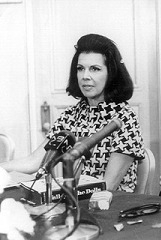Query Letters
A Query letter serves one function and one function only. But that function is so vital to a
writer's career that crafting the perfect query letter can take hours of work — sometimes days, weeks,
or even months of work. So what's the function of a query letter?
 Despite what many beginning writers think, its
sole function is to get a literary agent interested enough in your
book idea to request the book proposal. That's all a query letter needs to do. But if it does
this successfully, you're
on the road to success. In fact, as many as 99 percent of all query letters are rejected.
In order to ensure that your query letter is not among the majority that are rejected,
you'll want to:
Despite what many beginning writers think, its
sole function is to get a literary agent interested enough in your
book idea to request the book proposal. That's all a query letter needs to do. But if it does
this successfully, you're
on the road to success. In fact, as many as 99 percent of all query letters are rejected.
In order to ensure that your query letter is not among the majority that are rejected,
you'll want to:
- Describe your book.
- Give your credentials.
- Ask the literary agent to look at your book proposal.
Resist the temptation to say anything else in your query letter. Don't include
flowers, don't spray it with perfume, don't send it with balloons. The simpler and
more direct the better.
 Put yourself in a literary agent's shoes for a moment. What kind of letter would you like to get?
Wouldn't you like it to get to the point without cute
gimmicks, unusual paper, or bizarre fonts? And wouldn't you like it to spell your name right? These are all
givens in the world of publishing, and they suggest some easy-to-follow rules for writing a query letter that works.
Put yourself in a literary agent's shoes for a moment. What kind of letter would you like to get?
Wouldn't you like it to get to the point without cute
gimmicks, unusual paper, or bizarre fonts? And wouldn't you like it to spell your name right? These are all
givens in the world of publishing, and they suggest some easy-to-follow rules for writing a query letter that works.
- Spell the agent's name right.
- Tell the agent why you're writing to him in paragraph 1.
- Describe your book in paragraph 2.
- Don't overdo the fluff. Don't say it's going to be the next best seller.
- Spell out your previous publishing history in paragraph 3.
- Close by asking whether the agent would like to read your book proposal.
Keeping your query letter brief and simple is the way to get respect in the publishing world. Making sure it's neat and tidy is also important. Trust me, you'll stand out from the crowd on appearance, and that's a great way to introduce yourself. If you follow these guidelines your query letter will do its job, and one or more literary agents will request your book proposal. And then you can start to celebrate. (Photo of Jacqueline Susann from the collection of Lawrence Schulman and Alain Falasse.)